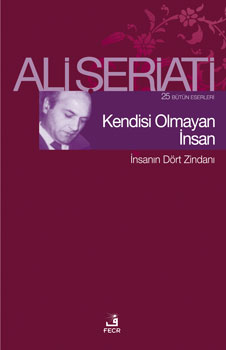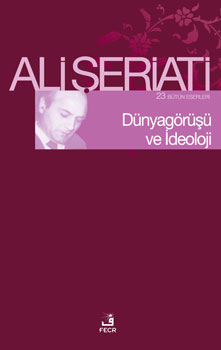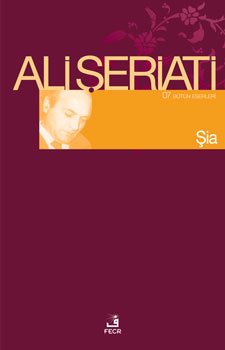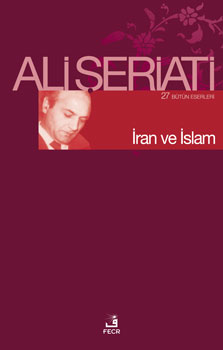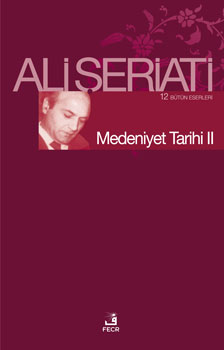ALİ SHARİATİ AND THE İSTEHMAR THEORY Tarek Heggy
Dr. Ali Shariati (1933-1977), who wrote and published his works before the downfall of the Shah of Iran, is one of the most prominent Iranian thinkers of the twentieth century. While conceding that he is undeniably a man of considerable intellect, I nevertheless find it hard to agree with his views on several major issues, in particular his unswerving conviction that Western civilization is purely material in nature and not the outcome of a system of values that made it what it is today (notwithstanding its many defects). Contrary to what Dr. Shariati thinks, it is my belief that the intellectual spirit that was born during the Renaissance, and the political, societal and cultural values that prevailed in the West, brought democracy into being and did away despotism, creating an environment in which scientific, material and economic progress could be achieved. Dr. Shariati, however, believes that values and morals are a prerogative of the backward East, whilst material distinction alone prevails in the West. It would seem that Dr. Shariati (in spite of his keen intellect) could not think in terms of concepts such as "humanity", "universal knowledge", or "one civilization, sundry cultures". I doubt whether they even crossed his mind. Nevertheless, there remains his intellectual courage coupled with an intense hatred of those who set themselves up as "men of religion" (in whatever society, culture or religion), whom he saw as forming an 'unholy' alliance with the political and financial powers that be, manipulating the masses through an insidious form of mind control that he rather wittily calls "istehmar", where people are fooled into pinning their hopes on the hereafter rather than focusing on their own (often miserable) lives.
Yesterday I was leafing through a number of Shariati's works that have been translated into Arabic and English, and re-read a booklet of his entitled "Intelligence – Istehmar", translated into Arabic in 1991. He states:
"The fate of religion has fallen into the hands of the enemies of humanity, the "istehmar" forces who may refer to themselves as the "spiritual " or "moral" classes; or as "Sufis" or "the priesthood", but all of whom use religion as a means of controlling (and fooling) people, whether individually or collectively. I speak here of the misleading religion; the "ruling" religion, in league with authority, money and power; controlled by a class of officials who claim exclusive access to religion and who seek the authority, power and profit that accrue from maintaining the status quo. How does this so-called religion fool people? While it cannot rob one of one's intelligence or social responsibility, it can nevertheless insidiously infiltrate the mind with messages such as: "Forget the world, for it only ends in death", "Save your hopes and aspirations for the afterlife", "It isn't long – thirty or forty or fifty years: what value have they? When they are over, everything will be at your command". "Just a few years of life that have no value whatsoever…Leave the world to those who want it" – i.e. the "religious" men themselves and their partners in power."
The similarity with Karl Marx is obvious here, though their objectives differ: Marx wished to do away with religion altogether, while Shariati sought to radically change people's core understanding of religious issues. They both agreed, however, (openly in the case of Marx and only hinted at by Shariati) that religion was "the opium of the masses" – or rather, that the manipulation of religion by clerics to serve their own purposes may be thus described.
To my mind, the writings of contemporary Iranian thinkers, most of whom are Islamists, are infinitely more refined (though I disagree with many of them) than those of the Sunni Muslims, which have come to represent a miscellany of the thoughts of Ibn Taymeya, Mohamed Ibh Abdel Wahab, Abi el A'la el Mawdudi, Sayed Qutb and the literary output of the Islamic Group in Egypt (before the latest developments in their ideology).
It is my hope that the Sunni world will cease its flagrant injustice towards the Shiites, and that we will come to realize how very little we know of their intellectual contributions from the time of Gaafar el Sadek (Peace Be Upon Him) until the present day. We know nothing of their doctrines and jurisprudence (much of which is highly refined) or their contemporary literary output. Even the educated, intellectual individuals amongst us remain strangely ignorant of Shiite thought. This injustice has prevailed since the assassination of the most exalted of the Companions of Mohamed (PBUH), Aly Ibn Abi Taleb, and his son El Hussein Ibn Ali, up until the atrocities perpetrated by Saddam Hussein against these much-maligned people. Nevertheless, I believe that Iran, if left in peace without being attacked by external forces, will succeed in refining its political, social and intellectual life and could well become (after Turkey and Malaysia) the third democracy in the Islamic world, though if that were to happen, its share of democracy would far exceed that of Turkey or Malaysia, for reasons that the present article cannot cover.
Kaynak: http://www.heggy.org/ali.htm

